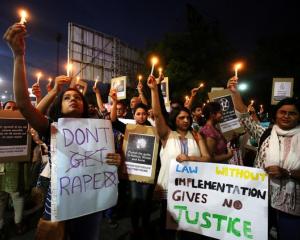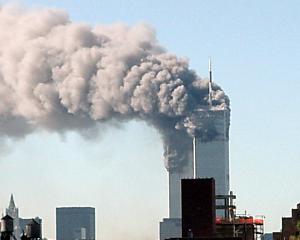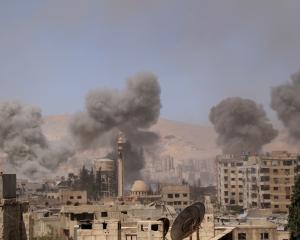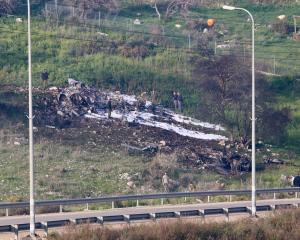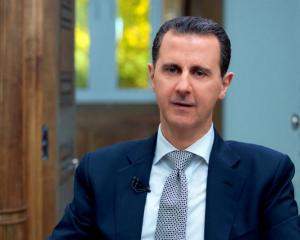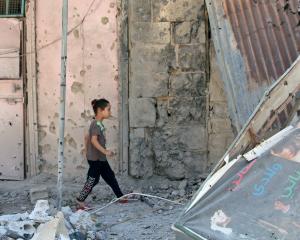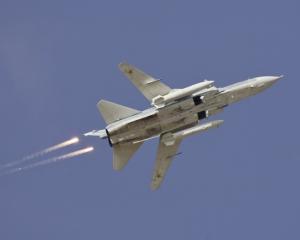The remarks by U.N. envoy Lakhdar Brahimi cast doubt on the future of his peace plan, the only major diplomatic initiative to end a war the United Nations says has killed 60,000 people.
He appears to have been pushed to take a firmer stance by a speech Assad delivered on Sunday, which was billed as a new peace proposal but offered no concessions and included a vow never to talk to foes he branded terrorists and Western puppets.
"In Syria, in particular, I think that what people are saying is that a family ruling for 40 years is a little bit too long," Brahimi told Britain's BBC in an interview aired on Wednesday.
"So the change has to be real. It has to be real, and I think that President Assad could take the lead in responding to the aspiration of his people rather than resisting it."
Brahimi's comments were welcomed by the opposition, which has long been angered by the U.N. mediator's refusal to take a firm position on excluding a future role for Assad.
"The statement of Lakhdar Brahimi has been long awaited," the opposition National Coalition's representative to Britain, Walid Saffour, told Reuters.
"He hasn't criticised Bashar al-Assad before, but now after he despaired of Assad after his Sunday speech, he had no other alternative than to say to the world that this rule is a family rule, and more than 40 years is enough."
Assad has ruled since 2000, taking over from his father Hafez, who seized power in a 1970 coup.
Brahimi met Assad in Damascus two weeks ago and has been convening senior U.S. and Russian officials in an effort to narrow differences between the superpowers backing either side in the war. The next round of those talks are due next week.
Brahimi said Assad had told him in December he would launch a new initiative. The veteran Algerian diplomat advised the president that any announcement should go further than previous failed proposals. He was disappointed by Sunday's speech.
MORE SECTARIAN, MORE ONE-SIDED
"I'm afraid what has come out is very much a repeat of previous initiatives that obviously did not work," Brahimi said of Assad's proposals. "It's not really different and perhaps is even more sectarian and more one-sided," he added.
"The time of reforms granted magnanimously from above has passed," Brahimi said. "People want to have a say in how they are governed and they want to take hold of their own future."
Brahimi said there was no military solution to the conflict: "The government will not win. The opposition may win in the long term, but by the time they do, there will be no Syria, so what is the victory in that?"
He said Assad had told him he wanted to run for re-election in 2014. Although Brahimi did not comment directly on whether Assad should be allowed to stand, he said the crisis needed to be resolved by the end of 2013 "or there will be no Syria".
The uprising against Assad is backed mainly by the Sunni Muslim minority, while he is supported mainly by other members of his Alawite sect, an offshoot of Shi'ite Islam, and other religious minorities.
Assad's speech on Sunday was firmly rejected by Western countries and the opposition, which described it as an attempt to cling to power and thwart mediation efforts.
After three days of silence following the speech, Moscow finally offered its support on Wednesday. Assad's proposals "affirmed the readiness for the launch of an inter-Syrian dialogue and for reforming the country on the basis of Syrian sovereignty," the Russian foreign ministry said.
Western countries have been searching for signs of Moscow curbing its support for Assad, hoping that this could finally lever him from power just as Russian withdrawal of backing for Serbian leader Slobodan Milosevic heralded his downfall in 2000.
Syria's state news agency, SANA, said Assad's new peace plan had been sent to the United Nations and was in line with Brahimi's peace plan.
Damascus did not immediately comment on Brahimi's remarks. But in social media, where in the past it was the opposition that usually expressed hostility to Brahimi, anger could now be heard from Assad's supporters.
"Brahimi is finished in Syria, he may as well resign," said a pro-Assad twitter user calling himself SyrianCommando.
CHANGE OF TONE
Some opposition supporters were wary of Brahimi's apparent late change of tone. Col. Abdeljabbar Oqeidi, a rebel leader in northern Syria, said he had not heard Brahimi's full remarks but it sounded as if his words were positive.
"Any initiative that doesn't require the entire regime to go and be put on trial will not be enough. We won't negotiate with that criminal or his gangs," he said by telephone.
Rebel fighter Abu Faisal, reached on Skype with the sound of exploding rockets in the background, laughed and said of Brahimi's conclusion that Syrians had enough of the ruling family: "This is a new discovery after two years? Maybe we should worship him now."
On the ground in Syria there was no let-up in fighting, despite four straight days of relentless rain, wind, hail and snowfall that weather officials in neighbouring Lebanon and Israel have called the worst winter storm for 20 years.
Rebels made a new push to seize a government air base in Taftanaz in the north of the country, which they failed to take in a three-day offensive last week.
After six months of advances, the rebels now control swathes of the north and east of the country, as well as a crescent of suburbs on the outskirts of Damascus. The government still has firm control of most of the densely populated southwest near the capital, the main north-south highway, the Mediterranean coast and military bases scattered around the country from which its planes and helicopters can attack with impunity.
The extreme weather has raised concern for the 600,000 refugees who have fled to neighbouring countries, displaced people within Syria and civilians, especially in rebel-held areas where fuel and food are growing scarce.
Opposition activists say dozens of people have died because of the storm in Syria. The weather claimed at least 17 lives in Turkey, Lebanon, Jordan, Israel and the Palestinian territories.
Civilians were sheltering in caves from the rain, and using plastic tarps to make homes among abandoned Byzantine ruins known as the Dead Cities, said Fadi Yasin, an activist in northwest Idlib province.
Residents in mainly rebel-held Aleppo were burning furniture and doors to stay warm, said Michal Przedalicki, an aid worker from Czech charity People in Need working in northern Syria.
"Unfortunately, I think it is quite likely that people will die from the severe weather conditions. Already people have not been eating enough for several months, and that exposes their bodies to more disease and infection."
In Damascus, rebels freed 48 Iranian captives they had been holding since August in return for the government releasing more than 2,000 prisoners. The Iranians arrived at a hotel in central Damascus.



